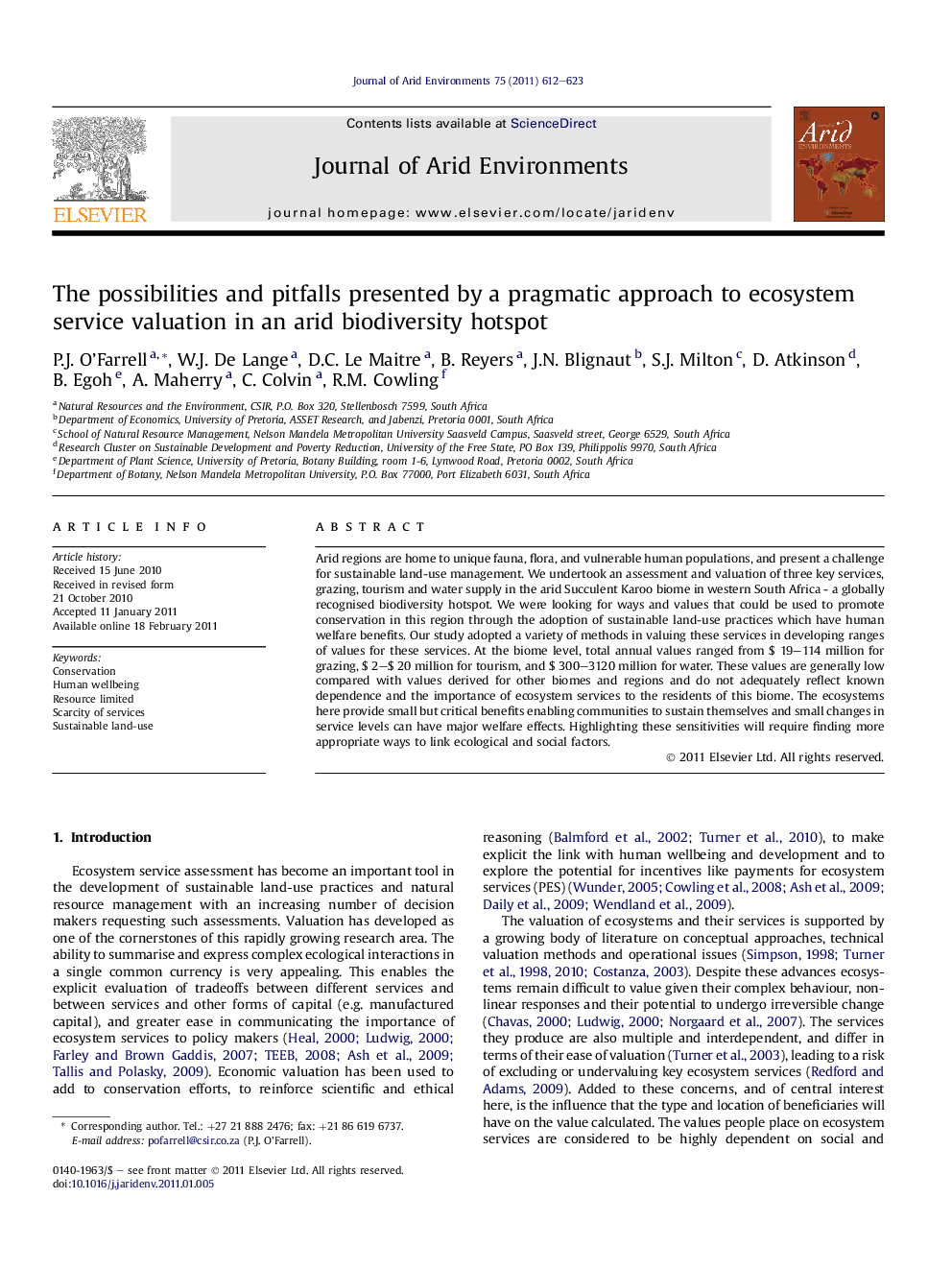| Article ID | Journal | Published Year | Pages | File Type |
|---|---|---|---|---|
| 4393749 | Journal of Arid Environments | 2011 | 12 Pages |
Arid regions are home to unique fauna, flora, and vulnerable human populations, and present a challenge for sustainable land-use management. We undertook an assessment and valuation of three key services, grazing, tourism and water supply in the arid Succulent Karoo biome in western South Africa - a globally recognised biodiversity hotspot. We were looking for ways and values that could be used to promote conservation in this region through the adoption of sustainable land-use practices which have human welfare benefits. Our study adopted a variety of methods in valuing these services in developing ranges of values for these services. At the biome level, total annual values ranged from $ 19–114 million for grazing, $ 2–$ 20 million for tourism, and $ 300–3120 million for water. These values are generally low compared with values derived for other biomes and regions and do not adequately reflect known dependence and the importance of ecosystem services to the residents of this biome. The ecosystems here provide small but critical benefits enabling communities to sustain themselves and small changes in service levels can have major welfare effects. Highlighting these sensitivities will require finding more appropriate ways to link ecological and social factors.
Research highlights► Values for ecosystem services in arid regions are low compared with values derived for mesic regions. ► Valuations do not clearly reflect known dependence and importance of ecosystem services. ► Small changes in marginal services can have major welfare implications. ► Key resource areas are easily over looked in ecosystems services assessments in arid environments. ► Having a diversity of services over a larger volume of a single service is often not recognised.
